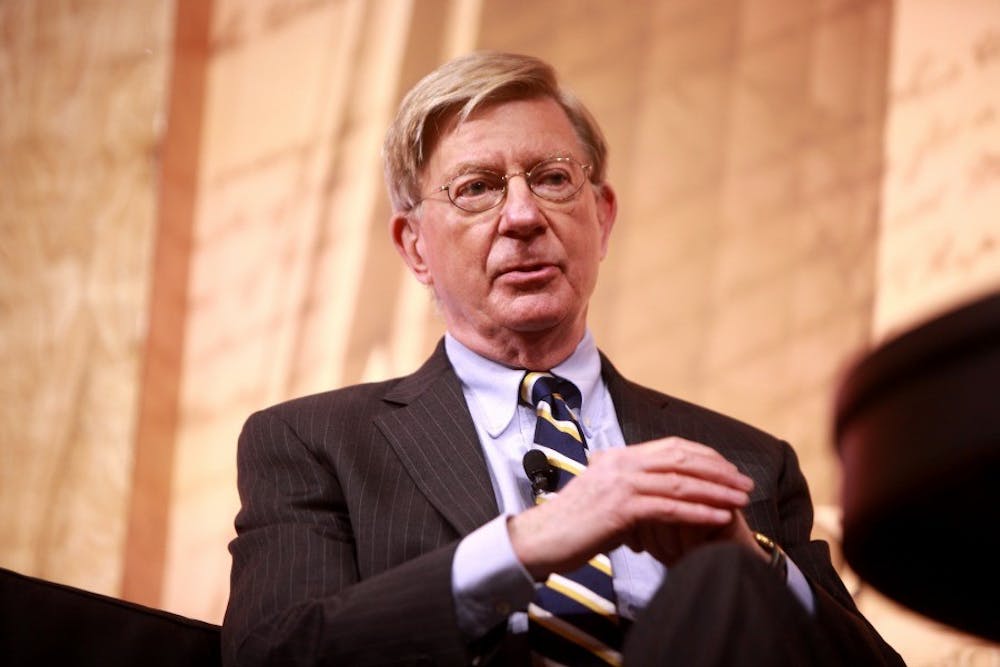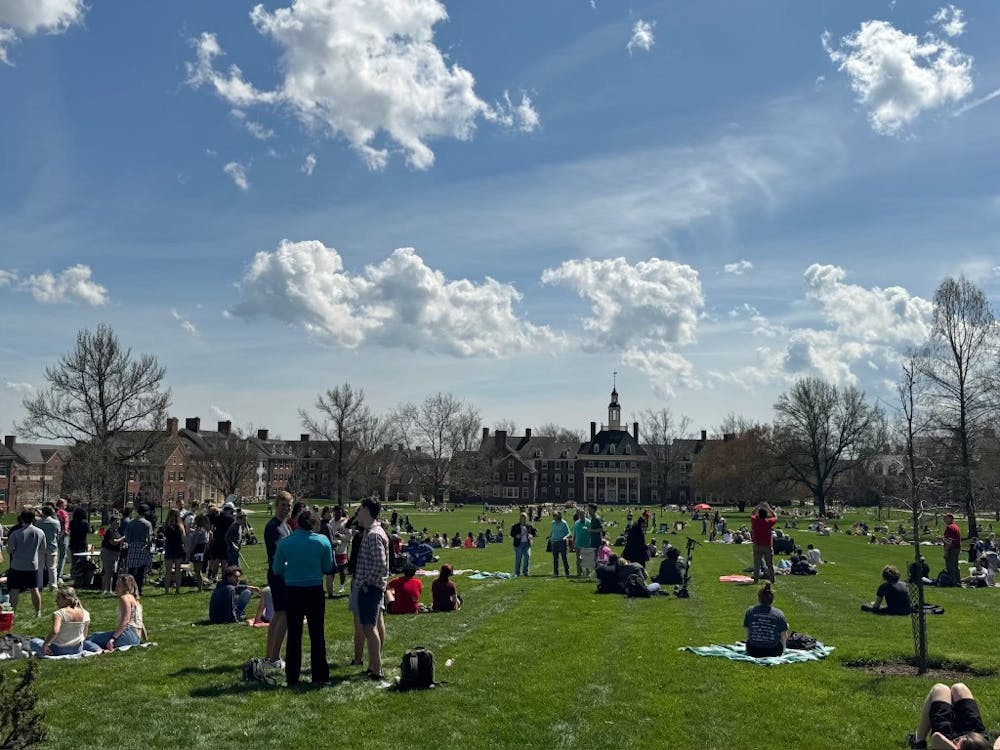Milam's Musings, milambc@miamioh.edu
One of my biggest regrets in my time at Miami was signing a petition to keep Washington Post columnist George Will from coming to campus.
In June of 2014, Will wrote a controversial column in which he said colleges and universities, via the influence of Washington, had made "victimhood a coveted status that confers privileges, victims proliferate."
Critics of Will said he suggested sexual assault victims on college campuses enjoy a privileged status in their victimhood.
When Will was slated to come to Miami in October of 2014, I signed a petition demanding Miami keep him from coming.
At the time, I had just started to get into the topic of rape culture on college campuses and it seemed logical to me that:
1. Rape culture exists on college campuses and that's bad;
2. George Will said rape victims enjoy a coveted status as victims;
3. George Will, by saying that, is contributing to rape culture;
4. Therefore, having George Will come to campus is itself contributing to rape culture;
5. As such, George Will should be stopped from coming to Miami and contributing to rape culture.
The major problem in my logic at the time is two-fold, both of great consequence.
Enjoy what you're reading?
Signup for our newsletter
First, George Will never said sexual assault victims have a coveted status. See the quote above again.
Will wasn't specifying sexual assault victims have a coveted status. There are other issues one can take up with Will's column, but that one is a case of misplaced ire.
Secondly, even if Will's detractors were correct in their characterization of his column, it should not follow that he be banned from speaking on campus.
As The Miami Student editorial board wrote ahead of his lecture, "We don't agree with Will's comments, but we think the university and its students should use this opportunity to generate discussion about sexual assault issues on our campus."
It's difficult to see what would be gained by removing the potential for such a dialogue and a learning experience, especially if one thinks Will had committed an egregious characterization of the sexual assault issue on college campuses.
I'm someone that believes college ought to be a space where intellectual disagreement is encouraged and commonplace, and where we regularly engage with those we disagree with.
So in signing that petition, I committed one of my greatest lapses in judgment and rationality.
Colleges and universities have given in to the mentality of safe spaces, banned lecturers and the like all too often lately. Unfortunately, I am partially a contributor to such a new wave of anti-intellectualism and paternalism.
Kelly Moore, in a letter to the editor to our paper after Will's lecture, wrote, in part, "Civilized people don't tolerate Holocaust deniers, because denying the Holocaust is a kind of obscenity that reduces that bonfire of courage and sacrifice and human suffering to a question to be debated."
But, I'm not sure it's so axiomatic that even a Holocaust denier ought to be denied entry to Miami.
After all, in 2007, then Iranian President Mahmoud Ahmadinejad spoke to Columbia University as a noted Holocaust denier and homophobe, among other things.
Certainly, it is the case that freedom of speech doesn't entail the requirement to provide a platform. However, I quite like Columbia University President Lee C. Bollinger's reasoning:
"What is at stake is the ability to learn about the world and know about people, even dictators, even people who are highly repressive and highly dangerous, as Dr. Ahmadinejad," Bollinger said.
And yet, according to Gallup, college students -- two-thirds of them -- believe there are times when restricting free speech on campus is acceptable.
Most troubling for people like me is that 59 percent of college students have little or no trust in the press to report the news accurately and fairly.
In fact, those two ideas -- times when restricting free speech is acceptable and a distrust of the press -- converged at Miami with the recent controversy over the Tim Fresch article.
No matter one's view on the article, I would hope most would find it repugnant to think Miami's administration should "do something about us," or that the Student's funding should be pulled or that the faculty advisor, Professor James Tobin, should be fired (despite not actually having any say, rightly, over what we print; he can only make suggestions).
Those are all comments I saw among the reactions to the article.
Even the calls to retract the article are misguided. What point would that serve, especially when it's already in the ether? Instead, let's talk about it in a robust manner, as has happened, although not always in a civil manner.
Nevertheless, I take solace in my lapse in judgment over the petition.
Not only do I now have a chance to use one of my last columns to repent, but also to actively make the case for another controversial campus appearance.
On April 30, Jeffry Smith, a firearm instructor and activist from Cincinnati, is planning an open-carry event through the campus and city of Oxford. As of this writing, according to the group's Facebook age, 46 people are going, with 121 interested.
The aim is to campaign for concealed carry on Miami's campus.
One of the biggest problems in our dialogues about guns is precisely that we don't dialogue or even seek to understand the other side.
There is nothing inherent in owning, possessing and carrying a gun that makes someone violent.
Their presence on campus, much like Will's or Ahmadinejad's, ought to be seen as a learning opportunity.
Unlike what Evan Fackler said in his April 12 column on the subject, it would be in accordance with the ideal of college culture, not the antithesis.
Free speech and free expression (even if that entails armed expression) should not be feared, most especially when it involves a clashing of ideas.




